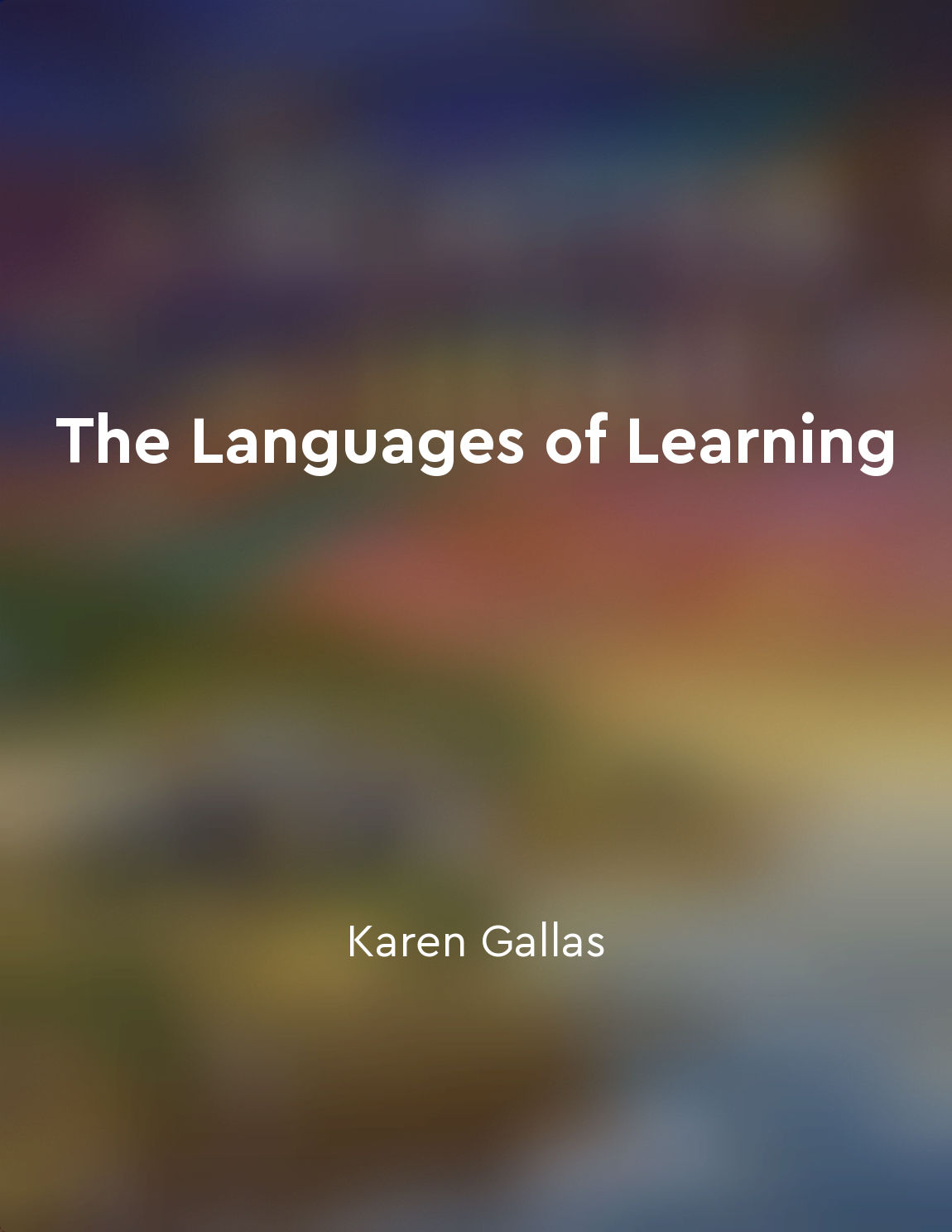Children's languages of learning are essential for their academic success from "summary" of The Languages of Learning by Karen Gallas
Children's languages of learning, encompassing their unique ways of understanding and engaging with the world, play a crucial role in shaping their academic success. These languages are not limited to verbal communication but extend to gestures, movements, and interactions that reflect children's thoughts, feelings, and experiences. By recognizing and valuing these diverse languages, educators can create a more inclusive and enriching learning environment for all students. When educators take the time to observe and understand children's languages of learning, they gain valuable insights into each child's strengths, challenges, and learning preferences. This deep understanding allows educators to tailor their teaching methods and strategies to better suit the individual needs of each student. By embracing children's diverse languages of learning, educators can foster a sense of belonging and empowerment in the classroom, leading to increased engagement, motivation, and academic achievement. Incorporating children's languages of learning into the curriculum helps to create a more holistic and meaningful educational experience. By integrating children's interests, experiences, and perspectives into the learning process, educators can make learning more relevant, engaging, and effective. When children see themselves reflected in the curriculum and learning materials, they are more likely to feel motivated, connected, and invested in their own learning journey. Moreover, by encouraging children to express themselves in their own languages of learning, educators can promote creativity, critical thinking, and problem-solving skills. Children who are given the opportunity to communicate and learn in ways that feel natural and authentic to them are more likely to develop a strong sense of agency and self-efficacy. This sense of ownership and autonomy can have a profound impact on children's academic success and overall well-being.- Children's languages of learning are a vital aspect of their educational experience that should be recognized, valued, and celebrated. By embracing and incorporating children's diverse ways of understanding and engaging with the world, educators can create a more inclusive, engaging, and effective learning environment that supports the academic success and holistic development of all students.
Similar Posts
Cultural beliefs influence teaching styles
The way teachers teach is not just a matter of personal preference or individual style; it is deeply influenced by the cultural...
Words are not fixed entities but are subject to change
The meaning of a word is not something that is set in stone, but rather something that can evolve over time. Words are not stat...
Covers all topics in the Class 7 English syllabus
This comprehensive question bank is designed to cover all the topics included in the Class 7 English syllabus. The questions pr...
Foster a sense of responsibility in your children
Encouraging a sense of responsibility in your children is a crucial aspect of their development. By teaching them to take owner...

Linguistic diversity should be celebrated and preserved for future generations
The diversity of languages in the world is a treasure that should be cherished and safeguarded for the benefit of future genera...
Humor can enhance listening and comprehension skills
The use of humor in language learning can have a positive impact on students' listening and comprehension skills. When students...


